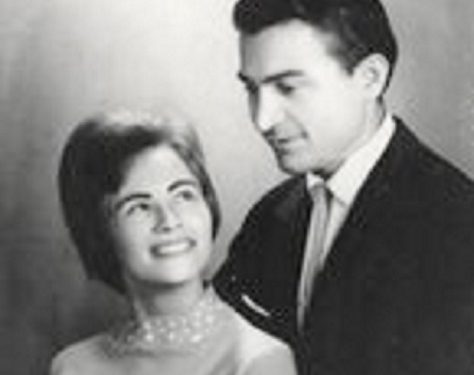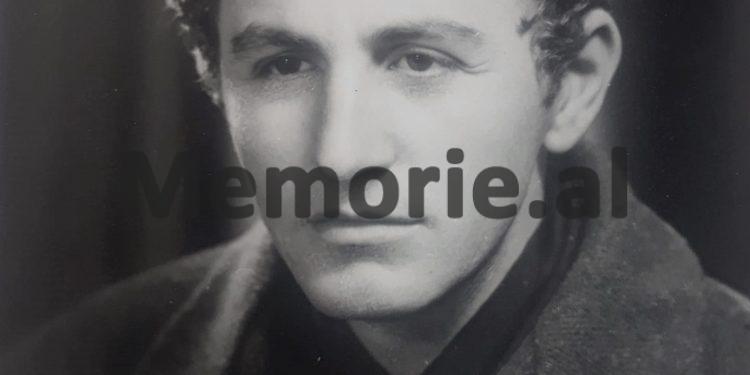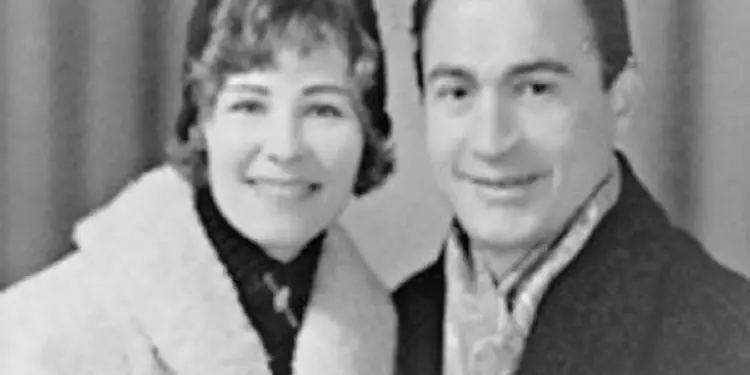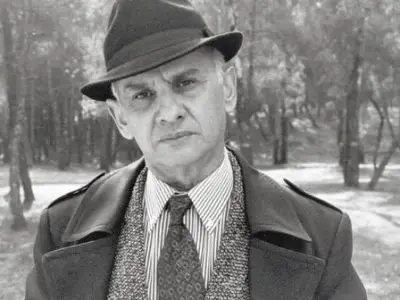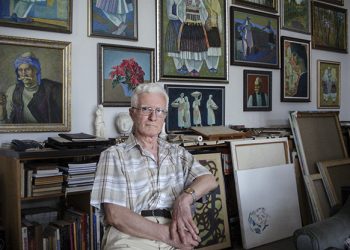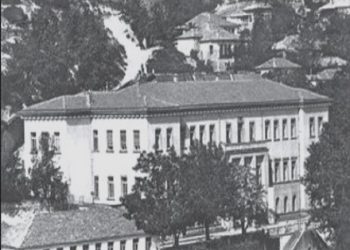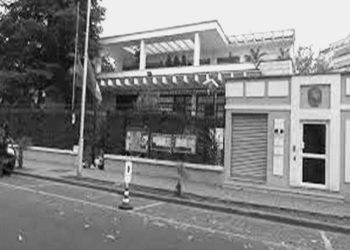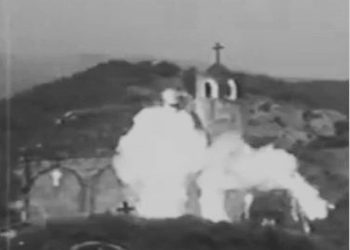By Bashkim Trenova
Part sixteen
Memorie.al publishes the memoirs of the well-known journalist, publicist, translator, researcher, writer, playwright and diplomat, Bashkim Trenova, who after graduating from the Faculty of History and Philology of the State University of Tirana, in 1966 was appointed a journalist at Radio- Tirana in its Foreign Directorate, where he worked until 1975, when he was appointed journalist and head of the foreign editorial office of the newspaper ‘Zeri i Popullit’, a body of the Central Committee of the ALP. In the years 1984-1990, he served as chairman of the Publishing Branch in the General Directorate of State Archives and after the first free elections in Albania, in March 1991, he was appointed to the newspaper ‘Rilindja Demokratike’, initially as deputy / editor-in-chief and then its editor-in-chief, until 1994, when he was appointed to the Ministry of Foreign Affairs with the position of Press Director and spokesperson of that ministry. In 1997, Trenova was appointed Ambassador of Albania to the Kingdom of Belgium and to the Grand Duchy of Luxembourg. Unknown memories of Mr. Trenova, starting from the war period, his childhood, college years, professional career as a journalist and researcher at Radio Tirana, the newspaper ‘People’s Voice’ and the Central State Archive, where he served until the fall of the communist regime of Enver Hoxha, a period of time when he in different circumstances met some of the ‘reactionary families’ and their suckers, whom he described with a rare skill, in a memoir book published in 2012, entitled’ Enemies of the people ‘and now brings them to the readers of Memorie.al
Continued from the previous issue
“Enemies of the people”
Valer Dyrzi’s meeting with the torturer and his witness in Tirana!
After 10 years in prison, Valer Dyrz had to face a reality of denial and unemployment. When in the summer of 1990, thousands of Albanians from all over the country blew up the doors of the Western embassies in Tirana, risking everything just to leave Albania, Valeri was among the first to enter the Italian embassy. He went to Italy where he still lives today, devoting himself to art, his only dream in life. In the fall of 2010 he returned to Tirana where he opened a painting exhibition at the National Gallery of Arts. He met friends and acquaintances, but also people he would not want to meet, who would turn him back in time, one of his torturers and a former witness, who approached him and greeted him. He was shocked, but did not feel any hatred towards them. He knew that they were only blind instruments of dictatorship, while it was the system itself, the dictator Enver Hoxha himself, who, as Valeri put it, “killed his own people, and dressed them in the uniform that Hitler wore to the Jewish people.”
After the fall of communism, Inga Tarasova, along with Seit and Djana, left Albania. They live in Moscow. I met Ina in the first years after the establishment of democracy, just by chance, on the main boulevard of Tirana. She had come to inquire about her pension. It was the same as before, calm, with the weight of years on his shoulder and some grays, which added to his former ashes, with a laugh that seems to still not dare or that he is badly, very badly injured.
My meeting in Tirana with Janka, the Bulgarian translator!
A few years later, in September 2010, I met in Tirana with Janka Selimi, the former translator of the Bulgarian show on Foreign Radio. We remembered many friends, comrades and years, we certainly remembered Ina too. Janka told me that she had paid a visit to Moscow to Ina Tarasova, who, as she told me, is in very good health and was dealing with her old passion, painting, had also opened exhibitions of her works in Moscow. Janka told me that even during her years in prison, Inga Tarasova had painted, just like Valeri, that she, with woolen threads drawn from the jerseys of imprisoned women, had reproduced a picture of a Great Russian painter, Ajvazovski, it seems to me.
My friend Berti also wrote to me about this passion of Tarasova. In an e-mail he sent me in recent months from the United States, he wrote to me: “In the house where we live, we have a painting by an unknown author, but it is certainly known as a work, because it is something like biblical, a rough sea and some people on a beam more than on a boat, who are being picked up by waves or waves because they are too big, too. This is a painting that Sajmiri, the husband of my daughter, Juna, has kept for almost 30 short years. Even when they came here, in the US, they took the painting with them. Sajmiri and Juna were neighbors; I wanted to say door to door with Tarasova, who had a hobby of painting with oil paints, on a large scale.
I think the painting is a reproduction of Ajvazovsky’s well-known painting, “Devjatij Vall” – “The Ninth Wave”. It is interesting to think that Tarasova has been taken over by this picture, which represents the turbulent destiny of man, the waves of life that strike him, it is not known where, in what abysses, in what abyss, the efforts to survive . The picture is the life of Tarasova and her family, so, apparently, she is tragically in love with her.
Aleksandra Shestova, my pedagogue, who did not abandon her husband!
In my youth I often heard a famous Russian song, which has this very beautiful verse: “I love your life and I hope you love me too”. Ina Tarasova loved life and life had no reason not to love her. It was her gravediggers, those who made life a grave for Ina Tarasova, as well as thousands and millions of Albanians. I would also like to mention here, Tarasova’s colleague at the Faculty of History and Philology, my beloved Russian teacher, Aleksandra Shestova. He was also removed from Tirana and sent somewhere in the North, if I am not mistaken, to the provincial city of Lezha. Aleksandra Shestova fell in love and dedicated her life to Qamil Çaci, while he was a student at Lomonosov University. He met her at the Faculty of Law where he studied International Law. The Albanian sat next to her, every time they went to study in the library… Even Shestova did not abandon her husband; she protected the family like that, with her Olympic calm, a godly calm that does not allow human lives to be disturbed.
Our sincere friendship with Janka and Skander Selimi
Janka Selimi was also one of those women who, like Tamara Gaci, Ina Tarasova or Shestova, did not leave Albania. She came to Albania after falling in love with Skënder Selimi, an Albanian student in the Soviet Union. Janka, a Bulgarian by origin, also continued her studies in this country.
I knew Skënder Selimi when he was still in the beginning of his glory. We on the Foreign Radio, on holidays, occasionally organized a dance party. On one of these evenings, in the large studio where the Radio Tirana Symphony Orchestra did its daily rehearsals as well as its recordings, I went to invite Janka, who was working at the time as a translator for the Bulgarian show, to dance. Since Skënderi had also come in the evening, the “rule” asked I to get his permission for this dance. So I did. Skënderi laughed and, after measuring I from head to toe said neither “yes” nor “no”. I had the impression that this is how he had to ignore me. I also had the impression that he himself realized that his behavior was not a “cavalier” behavior, so he said, always laughing: “Ask him yourself, Janka, why do you ask me?” Janka, beautiful as a twilight evening, wise, polite, glanced at Skënder, as if he wanted and did not want his permission. She stood up and rested her arm on my shoulder. We danced together passing from time to time near the table where Skënderi was standing, laughing with us and he with us. Maybe he was a little jealous that evening?! I have no reason to look for jealousy in the common life of Skënder and Janka. I would rather believe that he loved her so much that he did not want to “lose” her even for a moment, for a dance. Janka deserved such love. In it you could see the model of the woman, a delicate portrait as if engraved in marble. Qualities and perfection were not lacking.
My fellow editors and I had noticed that even our boss, Hasan Pinci, a character without a drop of salt, whether rinsed physically, intellectually or spiritually, was not insensitive to Janka’s grace. When I said this to Janka herself, after more than 40 years, she laughed and thought it was unbelievable. It never occurred to her that her presence in the newsroom had somewhat disturbed our boss! To us, the journalists of the Eastern Editorial Office, all young people, with the exception of Dimitar Jojic (also the young man in heart and soul), the ridiculous behavior of Hasan Pinci did not pass without comments and rhymes. We watched as his limbs trembled in her presence. How many times have we “speculated” by creating, inventing a pretext, for Janka to come to the Editorial Office, just to see our boss, in a very ridiculous position, to then make fun of him. Janka never found out about our “traps”, she was not a conspirator. We never told her, because we were afraid that she would put an end to these kinds of jokes, which were a lot of fun. We did not tell him either because we had full respect for Janka and we would never want to hurt her even though unintentionally. Others would not bother to give her and Skënder the most powerful blow in life.
Janka was asked to testify about Ina Tarasova’s “hostile activity”!
After the arrest of Ina Tarasova, while the investigator was looking for “evidence” to convict her, Janka Selimi was summoned to the Investigator for this purpose. She, as Janka herself told me, was asked to testify about Ina Tarasova’s “hostile activity”. For the Investigator, Janka’s “testimonies” would be very valuable since Tarasova was her colleague at work, her neighbor, her friend and both foreigners, of non-Albanian origin. Janka was seated in an Investigative chair in the Investigation Office. Opposite her the investigator and his desk. Same as in the Gestapo movies. The questions were among the most absurd, such as: “Has Ina Tarasova participated in forms of political education and has she discussed in these forms?”, “Has Ina Tarasova said that she feels like a lone piano in a field of “forgot”? ”Did you talk about politics together”?, “what were your conversations as a friend”? Etc. of this nature, which show that, after all, there was no evidence for Ina, but evidence was required to be devised. Maybe Janka and Ina, as friends who were and may have had a conversation that the regime could describe as “hostile” to him, but even in this case, she could not claim such a thing, because it would be in the same position with Ina, as “enemy” and, moreover, would be shown even without character, a treacherous friend. Janka was not like that and did not fall into the ambush of the Investigative questions. For this she and Skënder had to pay quite dearly.
Janka was fired as a translator for the Bulgarian show on Foreign Radio. The regime preferred to separate the “enemy” couples, not to allow them to enjoy together not the joy of life, but neither the cup of its sorrow, nor the poison that he himself had prepared and thrown into this cup. Skënder was taken to Bajza in Malësia e Madhe, to the most remote and highest points of the country. He would have to walk somewhere on foot and somewhere on a mule, somewhere in a random car, to organize cultural activities, so as to have a poor salary, enough to feed his family, to survive. “The best thing was that my wife did not abandon me”, says Skënderi in an interview he gave many years later in the Albanian press, “many women left, while my wife did not, she stood by me and I will not forget this forever …”
The joys, in fact, Janka even so far had not had many. During all those years she worked at the Radio, every time she entered the studio to record a Bulgarian show, Janka would start with the words “we are broadcasting”, which in Bulgarian were very close to the words “we are betraying”. Every time she swallowed tears, thinking that she was betraying her country of origin, speaking on Radio Tirana. Janka herself told me that, if in Albania she was targeted as an agent of the Bulgarian Secret Service, in Bulgaria she was targeted as an agent of the Albanian Secret Service. She was inadvertently as targeted as a ‘Mata Harri’ within the paranoid communist family!
The difficulties continued for Janka even after the overthrow of communism in Albania!
The difficulties for Janka continued even after the overthrow of communism in Albania. During my time as ambassador to the Kingdom of Belgium and the Duchy of Luxembourg, at a meeting of the NATO Parliamentary Council in Luxembourg, I met a Bulgarian MP named Anatoly Velishkov. I asked him about Janka Selimi, if he knew her. I wanted to learn something about her fate. I was told that she had left Albania. It so happened that Velishkov knew Janka and told me that she was engaged in trade between Bulgaria and Albania. I was amazed how Janka, with a poetic spirit, was dealing with this kind of activity, not without risks in the unsafe roads of the Balkans and in its unconsolidated markets, especially in Albania, where there was neither a rule nor was it respected, where only the term “market economy” and nothing of its real values or weaknesses, of its temptations and traps, of its savagery and infidelity.
Many Albanians ran to trade at the time. In Tirana, in almost every door of the house you came across a stall where something was traded; bananas, coca cola, cigarettes, old dishes and clothes, chairs and tables. It looked like everything was for sale. The place was in complete ruin. Albanians had to be caught with their nails and teeth after something that ensured their existence. Surely, in this general national asphyxiation, Janka must also have decided to engage in trade.
We met Janka again after many, many years. I, through my friend Selim Hoxha, who has set up a bar in Tirana called “Sofia” and which is part of the Albania-Bulgaria Friendship Association, got to know her phone number. I called her and let her have a coffee together that same day. Janka lived on Don Bosko Street in Tirana, at the beginning of the road. There we met and went to a cafe near her house. We talked at length, we remembered all our friends, translators and editorial translators, some of whom had left Albania, some of whom had even passed away. She was full of energy and projects, old age had approached her, but she had not dared to touch her.
Janka Selimi helped the Bulgarian director, Afdele Peeva, for the documentary, “Albanian Divorce”, (Razvosd po Allbanski)
Janka, like Tamara, wrote poetry. When we worked together on Radio, we knew that she translated Albanian poetry into Bulgarian. Now she was dealing with the translation of Balkan literature into Albanian, she is engaged in the TRADUKI project, a support program for the translation of the literature of the Balkan countries. “We are so close and do not know each other,” Janka told me, as we know German, French, Russian, English, etc. literature well. Thus, the month of July 2010, brought in Albanian the work of the Croatian author, Renato Baretic – “Grand Hotel”, translated by Janka Selimi. In October of this year, she offered to the Bulgarian reader the translated novel “The Snake of the House”, by the Albanian author Arian Leka. She has translated Albanian novel “Roman Natyral” by contemporary Bulgarian author Georgi Gospodinov. Janka has also translated “Gold Carpets” by Montenegrin author Jovan Nikolaidis.
Since 2007, the documentary “Albanian Divorce” (Razvosd po Allbanski) by the well-known Bulgarian director Adela Peeva has been circulating in closed festival halls in Europe. The film deals with the tragic fate of three couples, three mixed marriages of foreign women with Albanian men. Janka Selimi has helped in its realization, browsing together with her compatriot, documents in the Albanian archives. She also helped another of her compatriots, Mrs. Marina Marinova, who was awarded the “Medal of Gratitude” for her contribution to the recognition of Albanian literature in Bulgaria. Marinova has dedicated almost half a century of her life to Albanian literature. Speaking about Albanian literature, Marinova herself says: “No, I did not even have the opportunity to know its authors. Very late, a close friend of mine sent me a photocopy of excerpts from Gjergj Fishta’s poetry. That friend was Janka Selimi. “I consulted with him and we talked a lot about books.”
Culture is what builds bridges between the peoples of the Balkans. Janka Selimi gives her help in building these bridges. If only the agents of the foreign secret services in Albania were like this, if all the politicians of the Balkans and others, who still continue to blow the winds of a savage chauvinism and division, put a stone at the foot of these bridges!
Dismissal of other foreign translators at Radio Tirana!
Other translators would be severely beaten, without any guilt, without whispering a single word that could be interpreted as “agitation and propaganda” against the dictatorship and its people. One after another, Erika Përmeti, Janina Oroni, Joana Çina, Irena Kubati, Jarmilla Zotëria, Vjesha Hidri, Maria Roku, Donka Oktrova, Magda Çani and others resigned as translators.
Erika was a German translator, a woman with inexhaustible energy, very correct at work and with perfect knowledge of the language, who, if I am not mistaken, had her mother tongue. She was “touched” in the biography. I do not know the exact “diagnosis”, perhaps because her mother had been Austrian or that her husband had been imprisoned and with an origin from a feudal family!? This is how it was talked about on the radio. Loudly, Hysen Pojani instructed us young people that if Erika would show any dissatisfaction, and this would happen if we asked her to put some translated pages in the bin, to replace them with others , which had to be translated, we in this case, had to remind her of the pickaxe. As Hyseni pointed out, Erika knew very well what it means to work with a pickaxe, because she had tried this kind of work! Erika really only wanted one thing, to be treated like a human being, to be respected for her work.
She also had two or three small stones, which she placed on the sheets she had to translate, so that they would not fly in the wind if the window of the office where she worked was opened. Hysen Pojani had instructed us to be careful because, according to him, Erika had once been mentally ill and that these stones could fly over our heads if she got hot. Such a relationship was never established between Erika and us editors. I told the tales of themes like Hysen Pojani, they wanted to denigrate her because, she had a strong personality, because she did not allow herself to be played with her dignity and because she made clear the limits of tolerance, or intolerance.
Years and years later, when I was working at the Albanian Embassy in Brussels, one day the phone rang and on the other hand a woman’s voice greeted me and told me that it was Erika Përmeti. She, as she told me, lived in Austria. She seemed to be happy at last, in her old age, and she wanted to show this happiness to her old acquaintances. There was no request, no order.
The other translators who left the Radio were all women of non-Albanian origin, married to Albanian men. Janina Oroni, whom I, in “rivalry” with Robert Schwarz, had declared as my “girlfriend”, while I worked at the Radio, left Tirana and was sent to Berat. She was headstrong, often rebellious and, at times, even capricious. That could be her character. Perhaps this behavior is also explained by the tribal ties of her husband, Oron, a well-known eye doctor. He was a cousin of Spiro Kolekë, a member of the Politburo. This, perhaps, gave Ioannina the same security.
From my “love” with Ioannina or, as I affectionately called “Janka”, I still remember a letter that she and Robert Schwartz sent me in response to a letter I sent to them earlier in the winter of 1970, from Uznova of Berat. The letter states, among other things: “Dear Union. In the room 11 collective, we received your letter, addressed to our colleague “Janina or Janka”. This beautifully disguised letter seemed very suspicious to us, so we decided to take our friend in defense, to save her from your predatory claws, with long kilometers. We wonder how I did not feel comfortable there in Berat “?!
The letter below is about a flu epidemic that has plagued the translators of room number 11, as a result of which the word “love” was removed from the notebook and every man, who puts even the tip of his nose in the door, is cut with an egg rotten and with rotten tomatoes. The only man who has managed to penetrate us recently is you, and this should fill you with legitimate pride… Dear Bashkim, though thank you for your letter and believe that you did not find the postcard where you are, still, we advise you to give up once and for all from “J. or J’- that you have it in vain. Greetings! Janina or Janka. Robert ‘. Enver Muça wrote to me about the same thing then.” Today in the morning ‘, writes Enver on February 7, 1970,’ Jasha and Vjesha told me at the Buffet about the letter you sent to Janka and they also told me about the reply they sent you in the style of Robert Schwartz ‘.
Beloved Janina could not be helped either by the “love” of Robert Schwartz and mine, or by her husband’s tribal connection with Spiro Kolekë. It would follow the fate of all Polish women and, in general, foreign women married to Albanian men. Another Polish woman, Joana Çina, a woman of unparalleled humor though with a thousand and one illnesses, was sent as an educator to the school of mentally handicapped and deaf-mute children. Joana even uttered a word as if without harm. They took her to the deaf-mute as if to show her that she had to close her mouth and ears at the same time, otherwise, to her many diagnoses, that of the mentally ill could be added! Marie, the wise and smiling Czech, was sent to Kruja, together with her husband, Çesku, one of the most famous doctors and director of Albanian hospitals. They were there as in exile. Cesk was also expelled from the Party, which at the time was seen as a clear prelude to a heavier ongoing punishment. After the fall of communism, Maria lived in Durrës, where her daughter settled after marriage. The Czech is no longer alive. Memorie.al
The next issue follows





